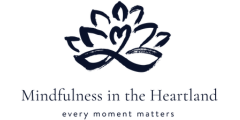“It’s in our biology to trust what we see with our eyes. This makes living in a carefully edited, overproduced and photoshopped world very dangerous.”
― Brené Brown
The saying, “you are what you eat” is generally accepted wisdom. It’s not a stretch of one’s intellect to see the link between what we put in our bodies and the quality of our physical health. But how many of us ever stop to think about the relationship between the media choices we make and its impact upon our psychological health?
One need only spend time on social media, channel surf or pick up a popular magazine to see our disproportionate fixation on fear-based, violent content or imagery that would render us all to fit within some homogenized slice of American pie.
I say “our” because although the media may bombard us with things that keep us afraid and not feeling “good enough,” these messages only sell because of our individual and collective buy-in. Those themes would quickly disappear from the various media sources if the money stopped rolling in.
The media we intentionally consume can tell us a lot about our state of mind. If we’re reading or watching a lot of negative media, we can stop and take the time to question what is being generated within us that we find so compelling. How does it make us feel about ourselves? About other people? About the world around us?
It is difficult to cultivate a peaceful heart when surrounded by stories of conflict and violence. Likewise, it is a challenge to maintain a healthy self-image when constantly looking to external measures for validation.
We may not be able to control all aspects of our media drenched environment, but we do have the ability to choose whether we indulge ourselves with empty calories of salacious fluff. Paying attention to the media we are consuming, and exploring the reasons why we choose what we choose, is a powerful step in creating a healthier world—both internally and externally.


 Living Moment-to-Moment: Embracing the Journey
Living Moment-to-Moment: Embracing the Journey